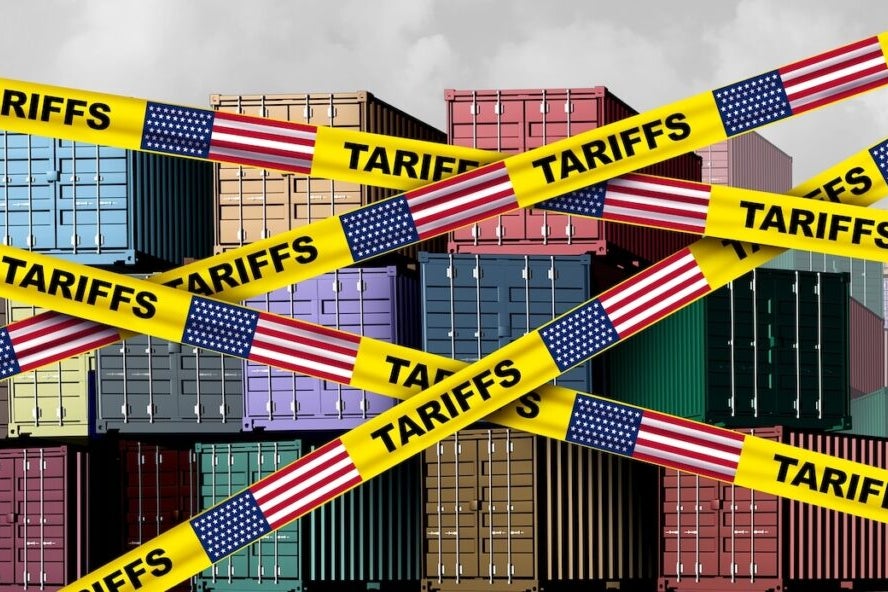Peter Schiff Critiques Trump’s ‘Eat the Tariffs’ Remark: A Closer Look at Economic Realities
Renowned economist Peter Schiff has sharply criticized former President Donald Trump’s recent claim that Walmart could “eat the tariffs” imposed on Chinese goods without raising consumer prices. In a June 2024 podcast, Schiff argued that Trump’s oversimplified approach ignores complex economic factors like rent, wages, and insurance that ultimately burden consumers. The debate highlights growing tensions over trade policy as the 2024 election approaches.
The Tariff Debate Reignites Ahead of 2024 Election
Trump’s controversial remarks came during a campaign stop in Michigan, where he suggested retailers could absorb the costs of his proposed 60% tariffs on Chinese imports. “Walmart and others will just eat the tariffs—they don’t have to pass them on,” Trump stated on June 12, 2024. However, economic data from the 2018-2019 trade war tells a different story:
- The Peterson Institute found Trump’s previous tariffs cost U.S. households $1,277 annually on average
- Federal Reserve research showed tariffs reduced real income by 0.2% nationally
- Walmart’s 2019 earnings reports revealed price increases on 10-15% of tariff-affected goods
Schiff countered on his podcast: “This magical thinking ignores basic economics. When costs rise for businesses, they either raise prices, cut jobs, or both. There’s no free lunch.”
The Hidden Costs Behind Retail Pricing
Industry analysts note that big-box retailers operate on razor-thin 2-3% profit margins. Dr. Laura Tyson, former Chair of the Council of Economic Advisers, explains: “In retail, every cost gets baked into prices eventually. Tariffs might show up as higher shelf prices, reduced product quality, or fewer store employees—but consumers always pay.”
Recent supply chain data underscores this reality:
- Commercial rents rose 5.8% year-over-year (Q2 2024, CBRE Group)
- Retail wages increased 4.3% since 2023 (BLS June 2024 report)
- Business insurance premiums jumped 7.5% in 2024 (Insurance Information Institute)
“These structural costs make it impossible for retailers to simply absorb tariffs,” Schiff emphasized. “The math doesn’t add up unless you believe in economic fairy tales.”
Alternative Perspectives on Trade Policy
Proponents of aggressive tariffs argue they protect domestic industries. The Coalition for a Prosperous America estimates Trump’s 2024 tariff plan could create 1 million manufacturing jobs. However, Harvard economist Dani Rodrik cautions: “Blanket tariffs are a blunt instrument. Targeted approaches with workforce transition programs work better, as we saw with the CHIPS Act.”
The Biden administration has taken a more nuanced approach:
- Maintained some Trump-era tariffs while creating targeted exemptions
- Invested $52 billion in domestic semiconductor production
- Pursued “friend-shoring” partnerships with allies
As the debate intensifies, small businesses report feeling caught in the crossfire. “We either raise prices and lose customers, or eat the costs and risk going under,” said Maria Chen, owner of a New Jersey home goods store.
What History Teaches Us About Tariffs
Economic historians point to consistent patterns from past trade wars:
- The 1930 Smoot-Hawley tariffs worsened the Great Depression (NBER study)
- 2018 steel tariffs destroyed more manufacturing jobs than they created (Federal Reserve study)
- Retaliatory tariffs reduced U.S. agricultural exports by $27 billion in 2018-2019 (USDA data)
“The idea that tariffs are painless is dangerous economic populism,” Schiff warned. “When China retaliated last time, we lost 300,000 jobs. That’s not theory—that’s payroll data.”
The Road Ahead for Trade Policy
As campaign rhetoric heats up, economists urge voters to look beyond soundbites. The Tax Foundation projects Trump’s 2024 tariff plan could:
- Reduce long-term GDP by 0.5%
- Eliminate 166,000 full-time jobs
- Increase consumer prices by 1.1% annually
With the first presidential debate approaching on June 27, 2024, trade policy promises to be a key battleground. Voters would do well to examine the full economic picture beyond political slogans.
For those seeking deeper analysis, the Peterson Institute will host a live webinar on June 25 examining the real-world impacts of proposed 2024 trade policies. Registration is open to the public.
See more Business Focus Insider Team

